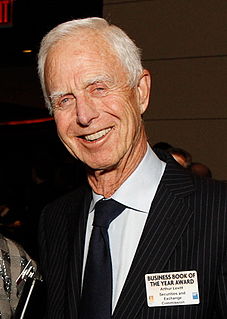A Quote by Jeffrey Pfeffer
The single most significant change has been the globalization of labor markets. Product markets - trade in goods - have been globalizing for years. But now, with the reduction in communication expenses and the building of all sorts of IT infrastructure, essentially any job can be done almost anywhere.
Related Quotes
What makes globalization even possible in the first place? One answer would be that it requires the regularization of some kind of media and communication infrastructure. When you have that, you might get globalized economic trade within some political or imperial framework, but it is likely you'll get transnational cultural flows as well. Globalizing trade can lead to a cosmopolitan culture, but also to all sorts of nationalistic or racist or patriarchal reactions to those as breaches of imaginary communities.
The ability to change one's mind is probably a key characteristic of the successful investor. Dogmatic and rigid personalities rarely, if ever, succeed in the markets. The markets are a dynamic process, and sustained investment success requires the ability to modify and even change strategies as markets evolve.
I believe that there have been repeated attempts to influence prices in the silver markets. There have been fraudulent efforts to persuade and deviously control that price. Based on what I have been told by members of the public, and reviewed in publicly available documents, I believe violations to the Commodity Exchange Act (CEA) have taken place in silver markets and that any such violation of the law in this regard should be prosecuted.
For equity markets, the combination of low interest rates, strong economic growth and low inflation has proved very beneficial, with global share markets rising solidly in each of the past three years. This has been underpinned by strong growth in profits so that, notwithstanding the rise in share prices, P/E ratios have been declining on average.



































